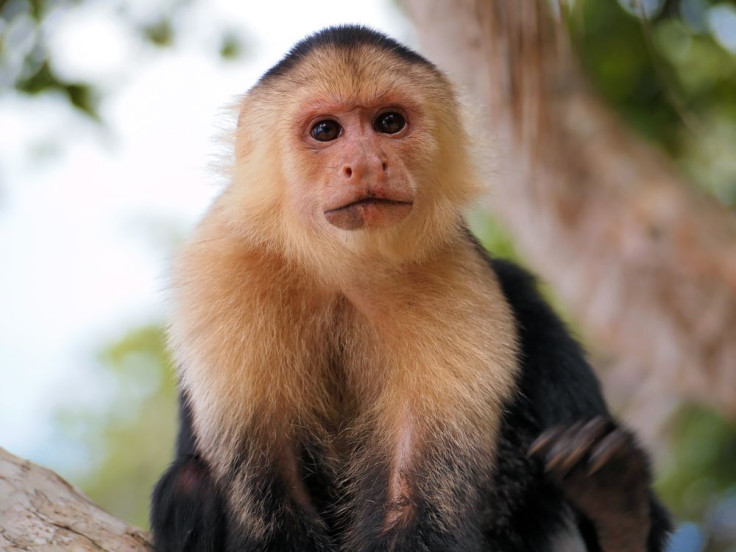Monkey See, Monkey Do (Not!): Unlike Many Humans, Monkeys Know How To Wisely Spend Their Money

What separates man from monkey may be the ability, or inability, to control our spending. According to results from a recent study, unlike humans, capuchin monkeys aren’t fooled by expensive brands and buy based on quality, not worth. This isn’t the first time that monkeys have outshone humans when it comes to controlling monetary choices, and experts believe the reason for this lies in human psychology.
Monkeys mirror men in many ways. Unfortunately, this means our furry genetic cousins also share many of the “bad” aspects of humanity. For example, monkeys can develop drug and alcohol dependencies and steal from their fellow monkey friends. They can even form murderous gangs that hunt and kill unsuspecting monkeys. There is one trait that still remains universally human, however: unscrupulous spending. Yale University has concluded that yes, even little monkeys know how to spend their money wisely.
Researchers from Yale University designed a series of four experiments to test whether capuchins would prefer high-priced but equivalent items. According to the press release, they taught the monkeys to make choices in an experimental market, and got the tiny primates to buy novel food at different prices. Results showed that monkeys, unlike humans, did not prefer the taste of higher-priced goods.
"We know that capuchin monkeys share a number of our own economic biases. Our previous work has shown that monkeys are loss-averse, irrational when it comes to dealing with risk, and even prone to rationalizing their own decisions, just like humans," said Dr. Laurie Santos, a psychologist at Yale University and senior author of the study, in the release.
In her previous experiments, Santos and her team handed the capuchins a gold coin while the researchers held a grape, Psychology Today reported. Each time the monkey would snatch the grape, the researcher would respond by snatching the coin. Soon, the monkeys learned that they could “buy” the grapes by trading their coin.
In the past, the team learned that monkeys hate risks and avoid them at all means. For the experiment, the monkeys time and again showed that they would rather hand over one grape to an experimenter who always handed back one grape than give their precious coin to an experimenter who sometimes gave two grapes and sometimes gave none. Unfortunately this aversion of risk is not shared by all humans, which is why practices such as gambling or playing the stock market are extremely popular.
This difference between the spending habits of humans and capuchin monkeys may be explained by how we structure our society. “For humans, higher price tags often signal that other people like a particular good." Santos noted. "Our richer social experiences with markets might be the very thing that leads us — and not monkeys — astray in this case."
A 2011 study published in Evolution and Human Behavior investigated the social benefits of luxury brands and found that buying such items could actually help to boost ones status in society. This is “because conspicuous displays of luxury qualify as a costly signaling trait that elicits status-dependent favorable treatment in human social interactions,” the researchers wrote.
In other words, humans buy expensive goods not because we think they are better but because we think other people will view us as better people for owning them. While this finding isn’t meant to make you feel guilty about owning a pair of Ugg Boots, it may make you think twice this holiday season about the real reason you’re spending so much on gift shopping.



























